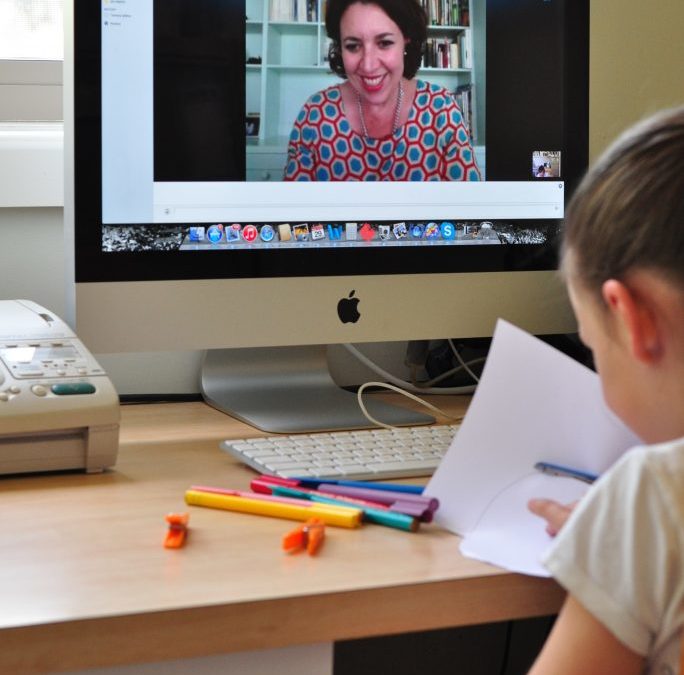Depression is not just sadness, it can be debilitating, impacting emotions, thoughts, and physical health. In this article, we explore depression beyond sadness, revealing the diverse and severe symptoms that make it a complex mental health challenge.
Key Takeaways
- Depression is a complex mental health condition characterised by a range of emotional, cognitive, behavioural, and physical symptoms that go beyond just feelings of sadness, affecting individuals’ day-to-day life.
- There are various types of depression, including major depressive disorder, persistent depressive disorder, seasonal affective disorder, and perinatal/postpartum depression, each with distinct symptoms and triggers.
- Treatment options for depression are diverse and can include psychology and alternative treatments, tailored to the individual’s specific needs and mental health condition.
Recognising Depression: More Than Just Feeling Sad
Depression, a term that too often is simplified to intense sadness, is, in reality, a complex mental health condition with a spectrum of emotional, cognitive, behavioural, and physical symptoms that significantly disrupt life’s rhythm. It casts a shadow over daily tasks, transforming routine activities into insurmountable challenges, and distinguishes itself from mere grief with its persistent, pervasive impact on mental health conditions.
Depression’s manifestations can drastically change someone’s entire existence, regardless of age or gender, underscoring the importance of early recognition and professional evaluation. What are these symptoms that subtly become part of one’s life, indicating a desperate need for help?
Physical Symptoms
The physical symptoms of depression are as debilitating as the emotional ones, even though they are unseen to the naked eye. The body slows down, weighed down by constant fatigue that sleep does not relieve. Rest becomes a battleground between insomnia and an overwhelming desire to stay in bed, disrupting life’s natural rhythms. Digestive turmoil ensues, with appetite swinging from nonexistent to insatiable, leaving behind either weight loss or unwanted gain.
Pain also becomes a more frequent companion, with aches and pains becoming more pronounced and hard to ignore. Even dizziness and lightheadedness can join this array of physical signs, further complicating the daily struggle.
Emotional Symptoms
The emotional symptoms of depression, including a persistent depressed mood, create feelings of sadness, emptiness, or irritability that last far beyond a bad day or a temporary upset. These symptoms are at the core of the depressive experience and are often misunderstood and dismissed by those who have not felt their grip.
Depression profoundly affects one’s emotional wellbeing, and severe depression can rob one of joy and interest in previously cherished activities, leaving a seemingly unfillable void.
Cognitive and Behavioural Symptoms
Cognitive and behavioural symptoms are less visible but equally damaging aspects of depression. They can steal focus and clarity, making it difficult to concentrate, memory, and decision-making. Simple tasks like choosing what to wear can become overwhelming. Actions and activities that were once automatic can change, signalling to others something is wrong.
Social withdrawal sets in as the individual retreats, losing interest in the world around them and further isolating themselves in a self-perpetuating cycle of depression.
Different Types of Depression
Depression is not a monolith. Rather, it wears many faces, each with its patterns and triggers. It includes a spectrum of disorders, such as:
- Major depressive disorder
- Bipolar disorder with its depressive episodes
- Persistent depressive disorder
- Seasonally influenced seasonal affective disorder
Each type brings a unique set of challenges and symptoms, making the experience of depression profoundly personal and varied.
Comprehending these variations is vital to customising treatment and support that caters to each individual’s unique needs.
Major Depressive Disorder
Major depressive disorder (MDD) is a significant mental health condition characterised by a range of symptoms that deeply affect one’s wellbeing. It involves a persistent low mood and diminished interest or pleasure in almost all activities, greatly impacting daily life. There are subtypes, such as melancholia and psychotic depression, which demonstrate the varying intensity and complexity within the same diagnosis, affecting daily functioning to varying degrees.
Additionally, disruptive mood dysregulation disorder (DMDD), although separate from major depressive disorder, is another example of a mood disorder that can significantly impact an individual’s life, showcasing the diverse nature of mood disorders.
Persistent Depressive Disorder
Persistent depressive disorder, also known as dysthymia, is a chronic form of depression that can blanket life in a persistent veil of sadness for years. The symptoms may not always reach the severe levels of major depression, but they persist stubbornly and can be just as debilitating, if not more so, due to their longevity. This lingering sadness, loss of interest, and accompanying symptoms such as difficulty focusing and excessive irritation rarely lift for more than a couple of months, making dysthymia a relentless foe.
Seasonal Affective Disorder
Seasonal affective disorder (SAD) is a cyclical adversary tied to the ebb and flow of seasons. It often begins in the winter months when daylight wanes. Reduced exposure to sunlight catalyses its onset, introducing a number of depressive symptoms that recede with the arrival of spring.
Generally, the prevalence of SAD is higher in regions with long, dark winters, highlighting the profound impact of our environment on mental health.
Perinatal and Postpartum Depression
Perinatal and postpartum depression are types of depression that can affect both women and men during and after pregnancy. These conditions can impact approximately 10% of women during pregnancy, increasing to 16% in the first three months after childbirth. Early intervention and understanding of these types of depression are crucial for the well-being of both parents and the child.
Personal Factors and Triggers of Depression
The causes of depression can be a complex mix of personal factors and triggers, including genetics and life experiences. Understanding these factors is crucial for preventing and treating depression, especially since about one in seven people in Australia may experience it.
Common triggers such as job loss, relationship problems, or personal illness can ignite depression, bringing to the surface a struggle that may have been dormant.
Genetics and Family History
Genetics and family history play a significant role in shaping one’s vulnerability to depression. Research shows there is a strong hereditary component to depression. If a biological parent or sibling has experienced depression, the risk of developing it triples. While no single gene is responsible for depression, a combination of genetic changes may contribute to this mental health condition.
Stressful Life Events
Life, with its ups and downs, can often lead to depression, especially when stressful events occur. Childhood traumas like abuse or early parental loss can lead to depression later in life. Emotional abuse, in particular, can make the mind more sensitive to stress, making the impact of future events, such as relationship conflicts, even more significant.
Personality Traits
Certain personality traits can contribute to depression. The constant pursuit of perfectionism and the resulting self-criticism can negatively impact mental health and lead to depressive episodes. Low self-esteem is also often associated with depression, as it can fuel feelings of worthlessness and worsen the condition.
Seeking Help and Diagnosis
Amid the multifaceted challenges of depression, seeking help and diagnosis stands out as a beacon of hope. Early intervention not only paves the path to recovery but can also mitigate the potential intensification of symptoms. Generally, this journey to wellness often begins with a visit to a general practitioner, who can refer individuals to a mental health specialist if needed.
A comprehensive diagnostic process, including clinical interviews and physical exams, is essential in identifying the presence of depression and its type. And when the darkness looms too heavy, carrying thoughts of self-harm, immediate help becomes a lifeline that must be grasped without hesitation.
When to Consult a Health Professional
Recognising when to seek the guidance of a health professional is a critical step in battling depression. If you have been experiencing a low mood for more than two weeks and it is persistently affecting you, it may be a sign that professional help is needed. This is especially important for individuals at risk of perinatal depression, as early intervention can significantly change the course of the condition.
Diagnostic Process
The diagnostic process for depression includes:
- Exclusion of other medical conditions that can mimic depressive symptoms
- A journey through one’s personal and family histories
- Questionnaires
- Brain imaging like CT or MRI scans if other conditions are suspected
Treatment Options for Depression
Upon identifying depression, the focus transitions to treatment options, each personalised to the individual’s unique experience with the condition. The array of weapons against depression is diverse, including:
- Psychology approaches like cognitive behavioural therapy (CBT)
- Medication that targets neurotransmitters
Psychology
Psychology is a powerful tool in combating depression. It allows individuals to reshape their thinking patterns and develop resilience. Techniques such as cognitive behavioural therapy (CBT), interpersonal therapy (IPT), and mindfulness-based cognitive therapy (MBCT) all play important roles.
Medication
Medications for depression can support psychology sessions. Selective serotonin reuptake inhibitors (SSRIs) and atypical antidepressants like bupropion and mirtazapine address the imbalance of neurotransmitters such as serotonin, norepinephrine, and dopamine.
Therapy Connect: A Solution for Accessible Mental Health Support
In the pursuit of accessible mental health support, Therapy Connect is leading the way by breaking down geographical barriers to connect individuals in rural or remote areas all over Australia with the care they need. Since 2015, Therapy Connect has been at the forefront of telepractice, offering a wide range of online therapies to improve the lives of those we serve.
Online Psychology
Online therapy for depression is revolutionising the way support is delivered, enabling individuals to receive care regardless of their location. At Therapy Connect, our experienced psychologists leverage digital communication to provide tailored, evidence-based treatments, ensuring those who might otherwise face barriers to accessing therapy can manage their condition from the comfort of their homes.
NDIS Participants and Specialised Services
Therapy Connect is dedicated to providing specialised services tailored to the unique needs of participants in the National Disability Insurance Scheme (NDIS). Our evidence-based online therapy is designed to support individuals with Autism, developmental delays, and other conditions. We are committed to empowering individuals and their families through a comprehensive, client-centred approach. Schedule your consultation with us today!
Coping Strategies and Prevention
Equipped with knowledge and appropriate treatment, individuals living with depression can find comfort in employing coping strategies and prevention. Here are some ways to cope with and prevent depression:
- Embrace early intervention to reduce the impact of symptoms and foster a quicker return to one’s usual self.
- Engage in open discussions about mental health to reduce stigma and increase awareness.
- Build resilience, especially in young people, to prevent the onset of depression.
Implementing these strategies can help you manage your depression and improve your overall well-being. Personal strategies, such as regular exercise, a balanced diet, and good sleep hygiene, act as support beams for fostering mental well-being and alleviating the symptoms of depression. Additionally, managing stress through leisure and relaxation practices is an essential aspect of coping with depression.
Lifestyle Changes
Incorporating lifestyle changes is fundamental to both treating and averting depression. Here are some strategies to consider:
- Regular exercise, like a brisk 30-minute walk, can release feel-good endorphins.
- Maintaining a routine helps anchor one’s day amidst the turbulence of depression.
- Meditation and deep breathing exercises can provide a tranquil haven from the storm of anxious thoughts.
It’s often the simple, daily choices—like nurturing hobbies and connecting with others—that can weave a stronger fabric of mental health.
Social Support
The importance of social support in managing depression cannot be overstated. Having a network of friends and family serves as a safety net against the isolation that depression often brings. Conversations with trusted individuals can help shed light on the mind’s dark corners, offering perspective and hope. By connecting with others, you can find relief from your struggles, highlighting the importance of nurturing and sustaining these connections.
Frequently Asked Questions
What are some common misconceptions about depression?
One common misconception about depression is that it is just feeling sad when in reality, it is a complex condition with a range of symptoms. Another misconception is that depression is a sign of weakness or can be overcome by willpower alone.
Can lifestyle changes make a difference in managing depression?
Yes, lifestyle changes such as regular exercise, a healthy diet, and good sleep habits can indeed improve mood and energy levels, making a difference in managing symptoms of depression.
Is it possible to recover from depression without medication?
Yes, recovery from depression without medication is possible through psychology, lifestyle changes, and support systems, but it is essential to consult a mental health professional for a personalised treatment plan.
How does Therapy Connect provide mental health support to people in remote areas?
Therapy Connect provides psychology services to people in remote areas through online therapy. We deliver tailored, evidence-based psychology to clients of all ages, all over the country.
What should someone do if they suspect a loved one is struggling with depression?
Approach the situation with empathy and support. Encourage your loved one to talk about their feelings and gently suggest seeking help from a mental health professional. Being present and offering to accompany them to appointments can also be immensely helpful. Start by speaking to your local GP for support or contact us directly at Therapy Connect.
Final Thoughts
It is clear that depression is more than just a passing cloud of sadness—it is a storm that affects every aspect of life. With the right knowledge, support, and treatment, individuals can navigate the fog and emerge on the other side. Whether it is through medication, therapy, or lifestyle adjustments, the journey to recovery is a personal one. At Therapy Connect, we bridge the gap to accessible psychology, ensuring no one has to walk this path alone. Contact us today to schedule your consultations.




